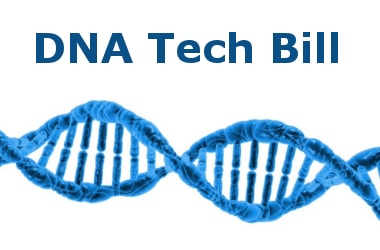
The New DNA Tech Bill - Pros and Cons
DNA fingerprinting Bill was drafted in 2015 but wasn’t introduced in the parliament. Now after 2 years, the bill is back with some changes. The new name given to the bill is The DNA Based Technology (Use and Regulation) Bill. The bill aims to regulate and standardize DNA testing and supervise the activities of laboratories that are authorized to carry out these tests.
DNA testing is an accurate means to detect the identity of a person or to establish their relationship with another person. Bloodstain or even a hair strand can be used to match the DNA of a person to identify crime and other illegal activities. It is also used in determining parentage.
Pros1. AccurateThe accuracy of DNA profiling has been identified in the new draft since chances of error are one in a billion which can be true for any tests. The test can easily be used to identify criminals or relations of a person with another and hence there should be no issue in maintaining a database of DNA as suggested by the bill.
2. Regulatory issuesA DNA Profiling Board and a DNA Data Bank should be capable of taking care of the regulatory issues. Earlier the issue of laboratories being unauthorized to do DNA tests and retain the records for future references was seen as intrusive and affecting the privacy of people. The board will be in charge of upholding ethical and human rights of people.
3. ConsentThe new bill states that an arrested person cannot be forced against their will to provide any sort of DNA samples, except in rare cases. The consent of the person is given due importance. If the magistrate approves that DNA testing is absolutely required, the person shall be bound to provide samples.
4. Records of innocentsThe new draft ensures that the samples of individuals from the crime scene who are not offenders shall not be matched and stored in the database and upon a written request from the individuals; it shall be expunged from all records.
5. No statistics maintenanceThe new draft strictly prohibits the usage of DNA profiles for creation and maintenance of population statistics databank.
Cons1. AccuracyThere are chances, low but prevalent, that the match generated from DNA testing could be wrong. This could lead to an innocent getting penalised or punished for no reason. The evidence generated from DNA profiling ought not to be considered ultimate.
2. Privacy issuesA complete analysis of the privacy issue has not been addressed even in the new draft. Just another committee is set to look into the matter and create regulations that they find suitable. This could lead to serious misdirection when it comes to deleting records, accessing database, situations for consent, etc.
3. Misuse of databaseSince DNA could be used to know the diseases, allergies and vulnerabilities of a person, it can be misused to hurt the person. Privacy should have been an important clause in the new draft which it failed to give much needed importance to.
DNA profiling is necessary but it can be misused and misled into the wrong path and hence regulations should have been made instead of creating a regulatory body to take care of it.